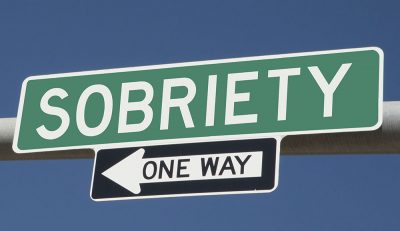Recovery from Alcoholism and Drug Addiction- What is Recovery?
 Ideas and words like “recovery”, “sobriety” and “clean and sober” make sense to people who have crossed the bridge from addiction to recovery, but people still suffering from the effects of the disease may not share that understanding. When a person trapped by their own need to drink or use chemicals arrives at the greater need to stop, they may be ready for recovery. Recovery starts with the realization that continuing to drink or use worsens existing problems and is a problem itself. At this point, the drink or drug creates negative consequences and a greater need to drink or use drugs next time.
Ideas and words like “recovery”, “sobriety” and “clean and sober” make sense to people who have crossed the bridge from addiction to recovery, but people still suffering from the effects of the disease may not share that understanding. When a person trapped by their own need to drink or use chemicals arrives at the greater need to stop, they may be ready for recovery. Recovery starts with the realization that continuing to drink or use worsens existing problems and is a problem itself. At this point, the drink or drug creates negative consequences and a greater need to drink or use drugs next time.
Addiction (including alcoholism) is characterized by many signs and symptoms. One of the more telling signs is when someone encounters negative consequences from their substance use yet continues despite such consequences. Addiction (including alcoholism) is a psychiatric disorder and medical disease- it is chronic, progressive and relapsing with biological, emotional, cognitive, social and spiritual effects. (“Crazy” is when you take the same action but expect different results.)
Recovery starts with avoiding the first drink or drug… abstaining from addictive substances one day at a time. Once the chemical and its effects are physically absent and slowly become psychologically distanced, recovery can then become a process of learning, understanding, becoming increasingly aware, practicing new skills, and monitoring personal ideas, feelings and behaviors. The recovering person discovers an openness to learn and understand new ideas, and to practice new behaviors and skills. Change becomes possible in recovery.
New friends and acquaintances who are understand and support sobriety are gained- a new sober support network is introduced. People learn that the old secrets and isolation worsen feelings of loneliness and hopelessness. Expressing uncomfortable feelings and openly describing the sensation of craving decreases their intensity and builds behavioral practices of honesty and authenticity.
People who have encountered the same help strengthen each other’s sobriety through fellowship and service to each other. Giving back and becoming helpful to others strengthens recovery practices and builds self-esteem. Rather than the drunk or drugged fantasizing about fame and fortune, the recovering person gains self-esteem though estimable action.

